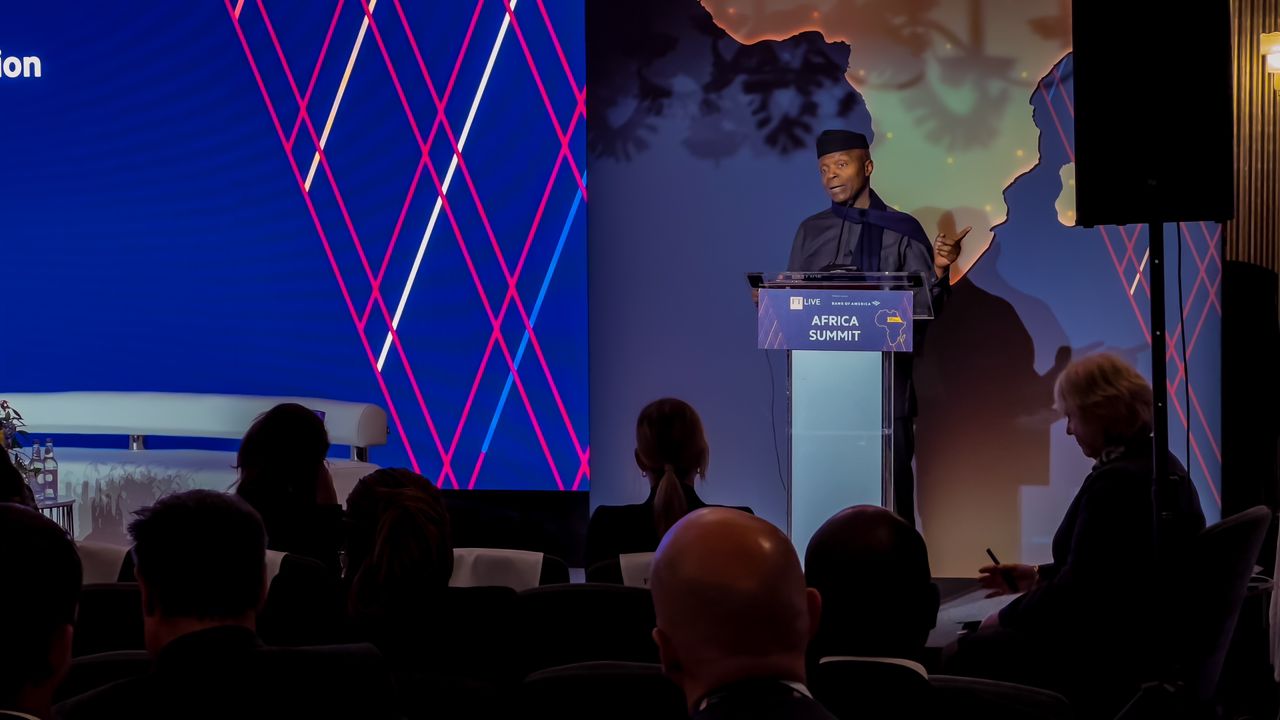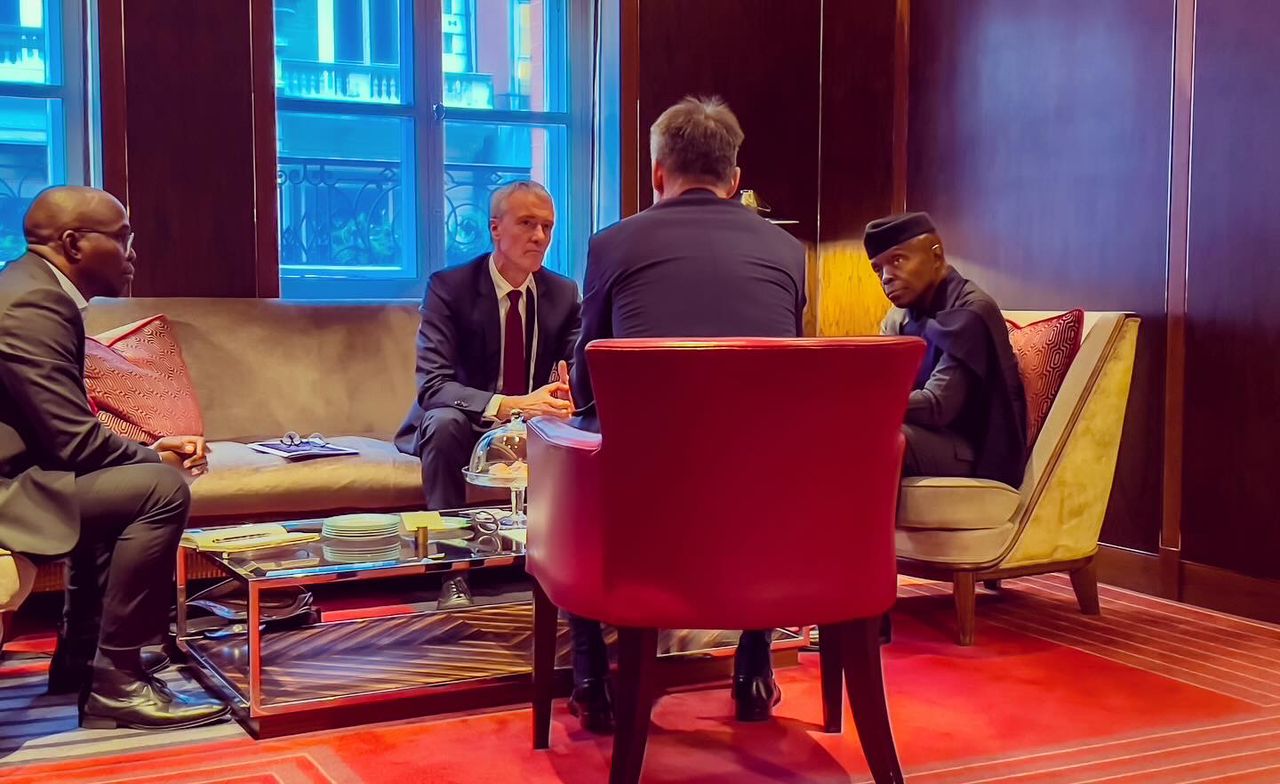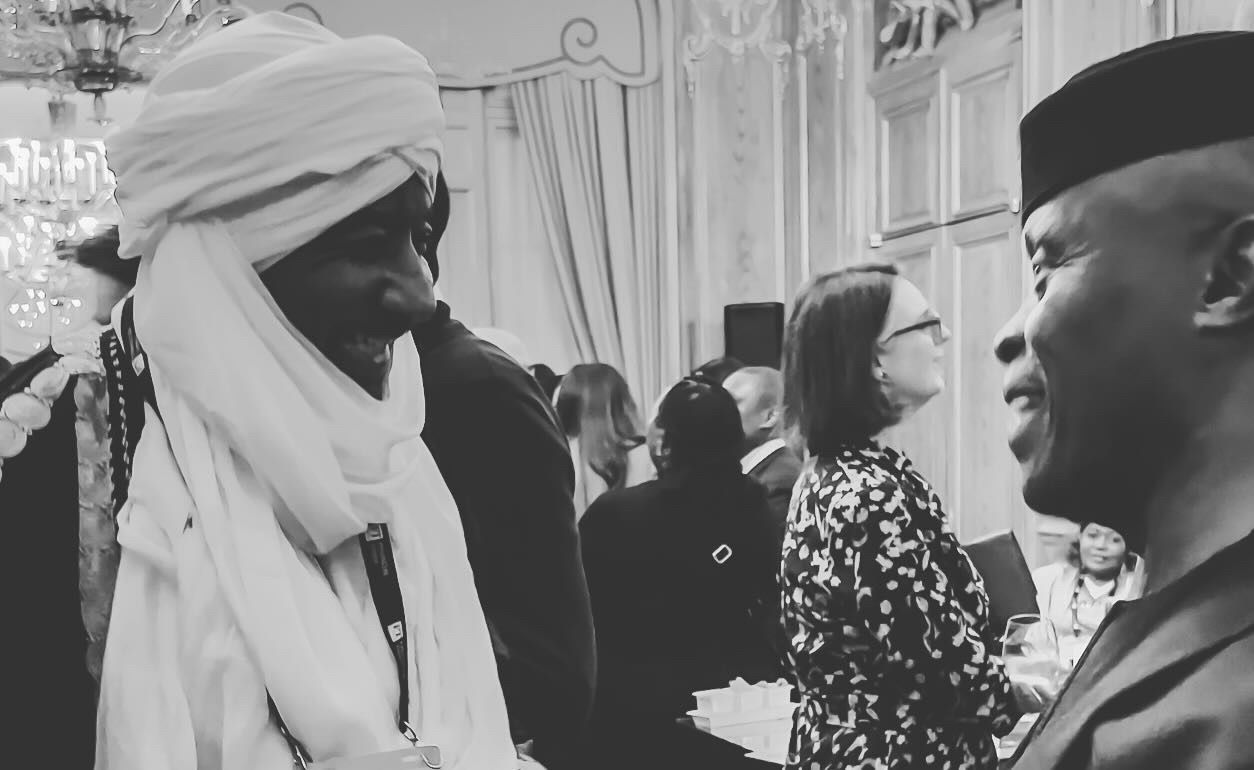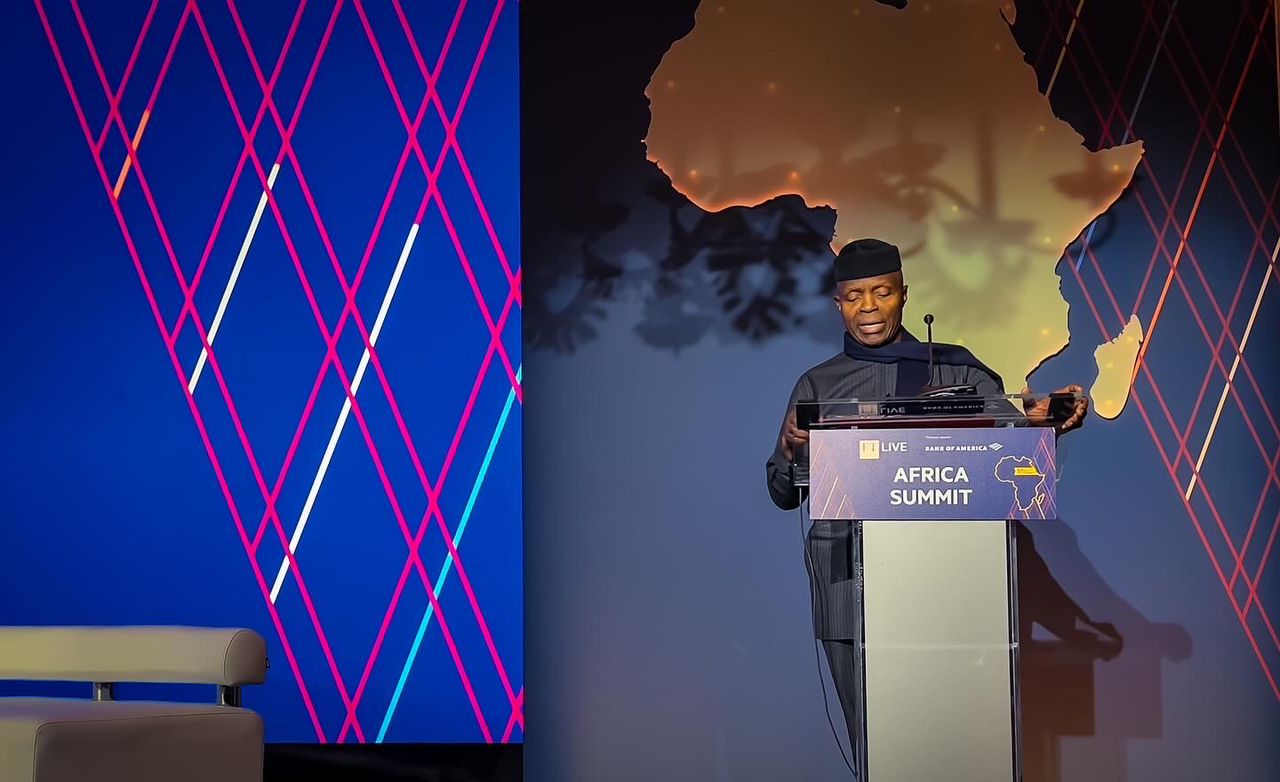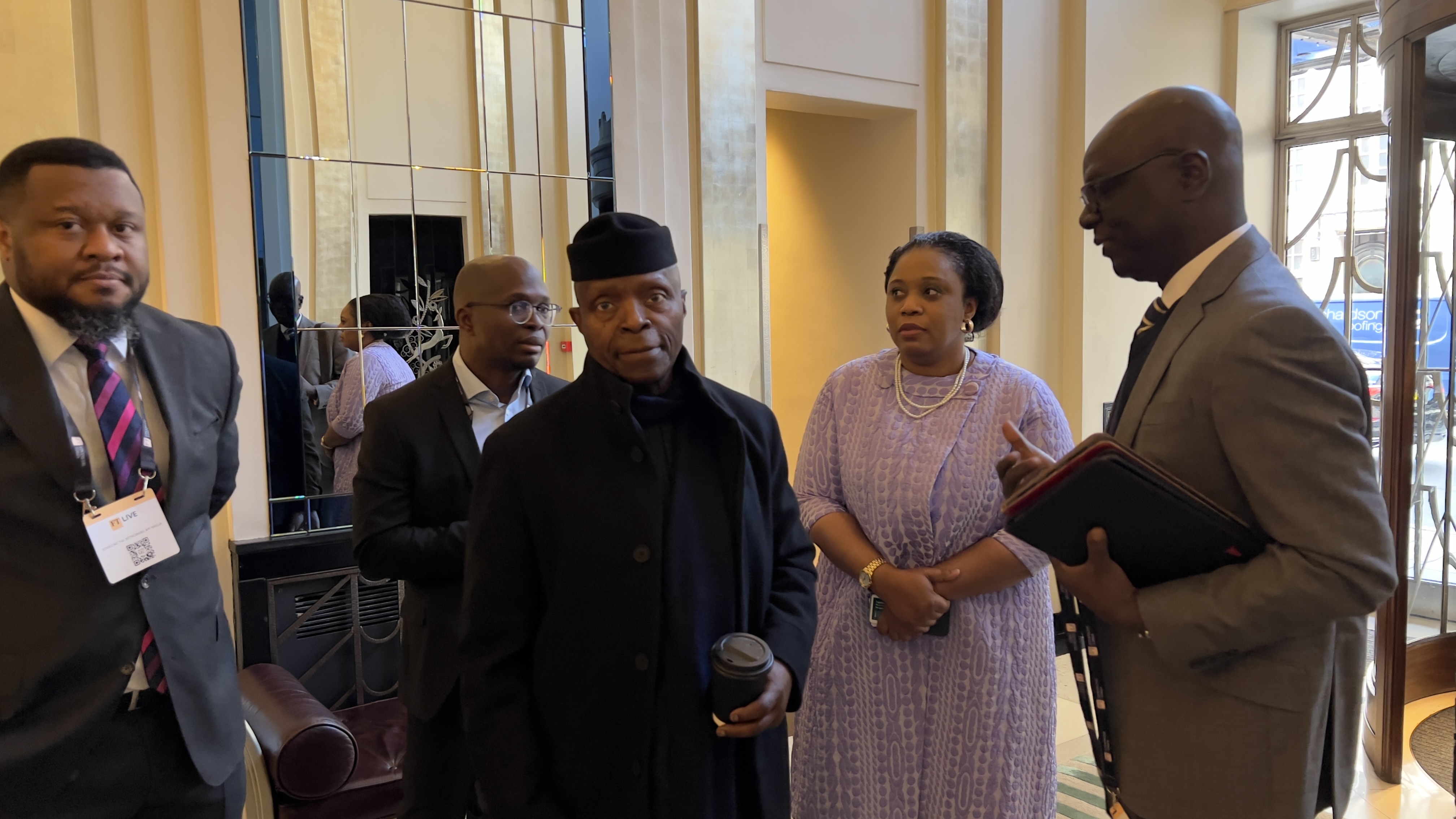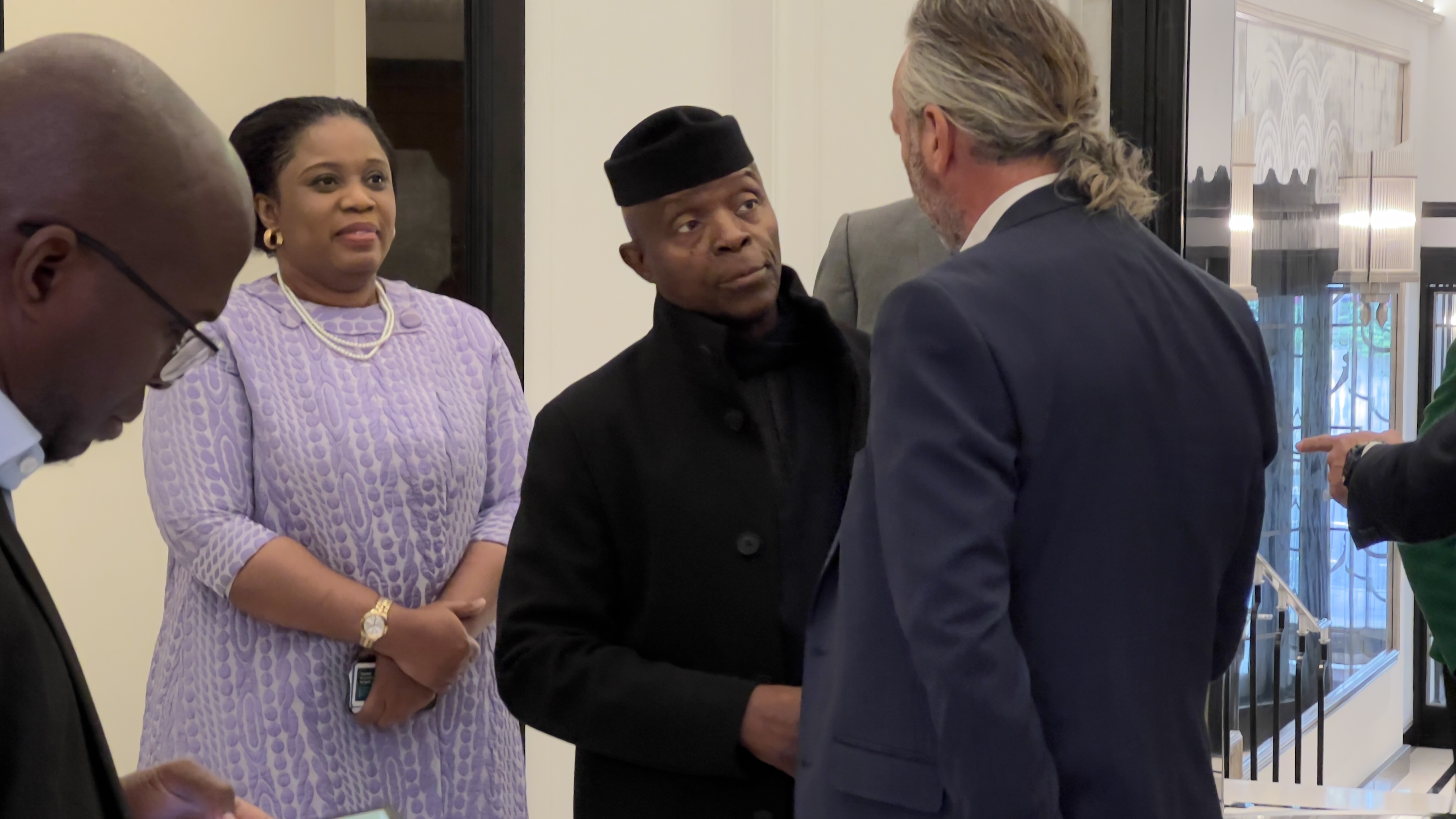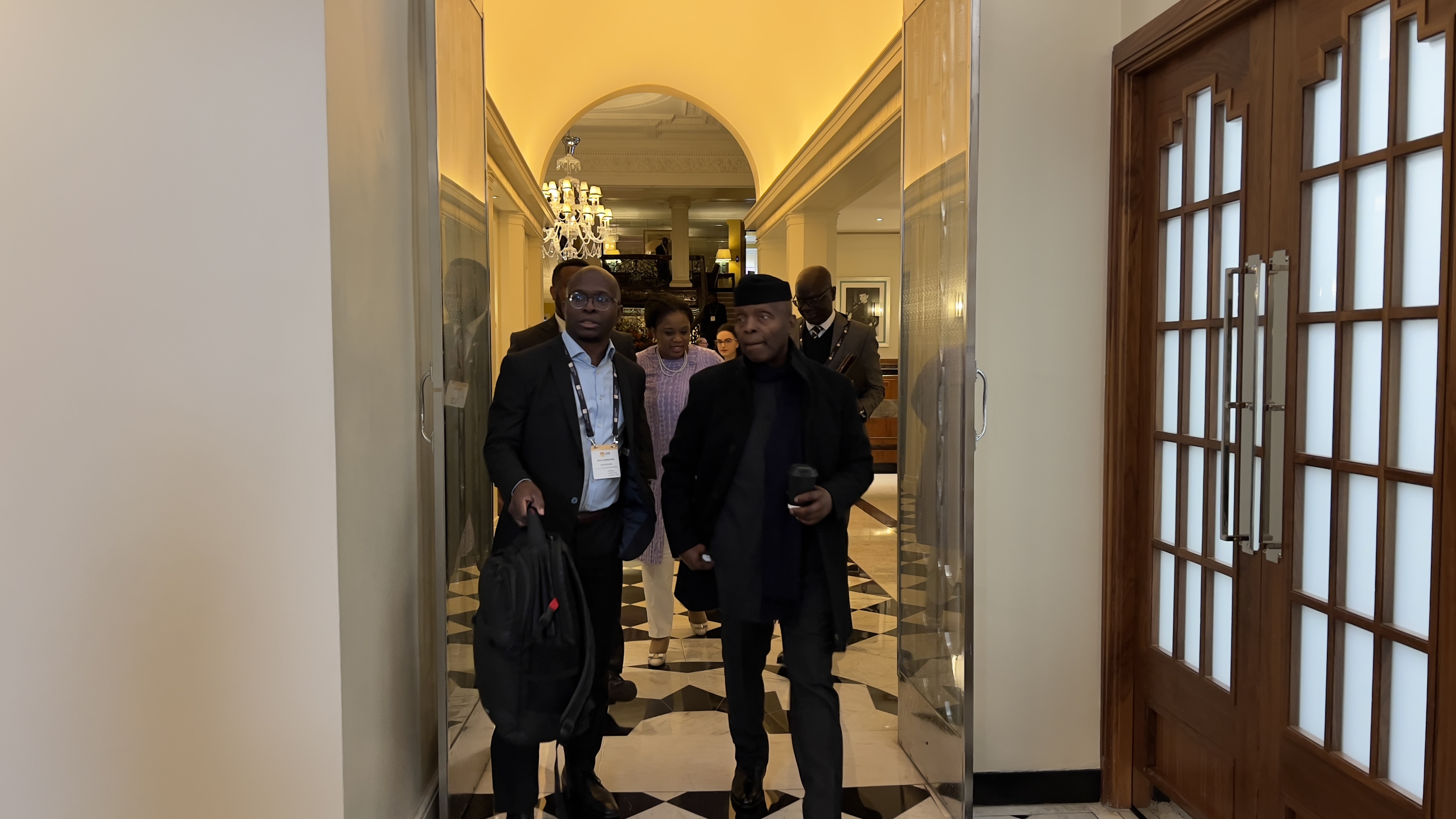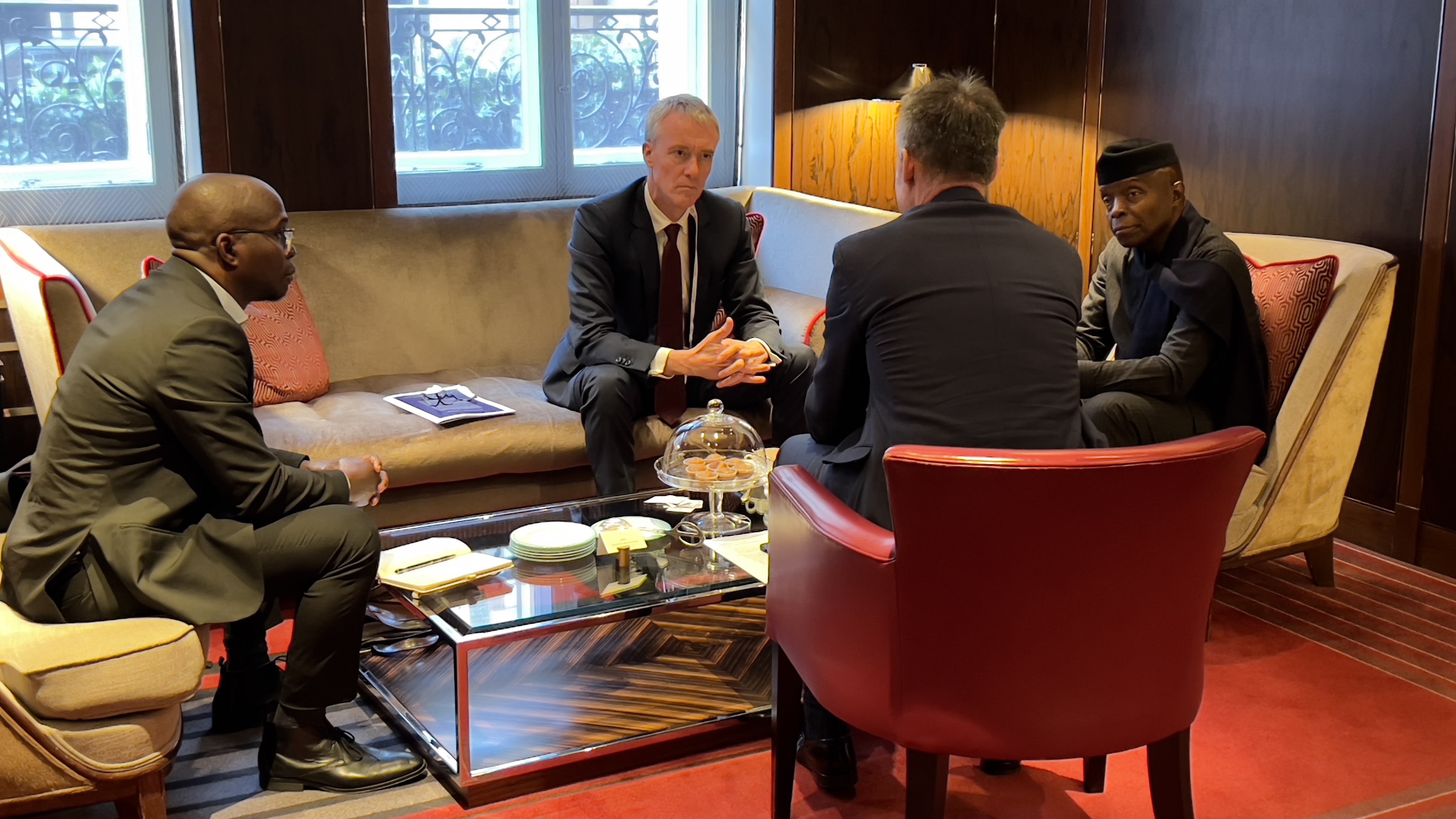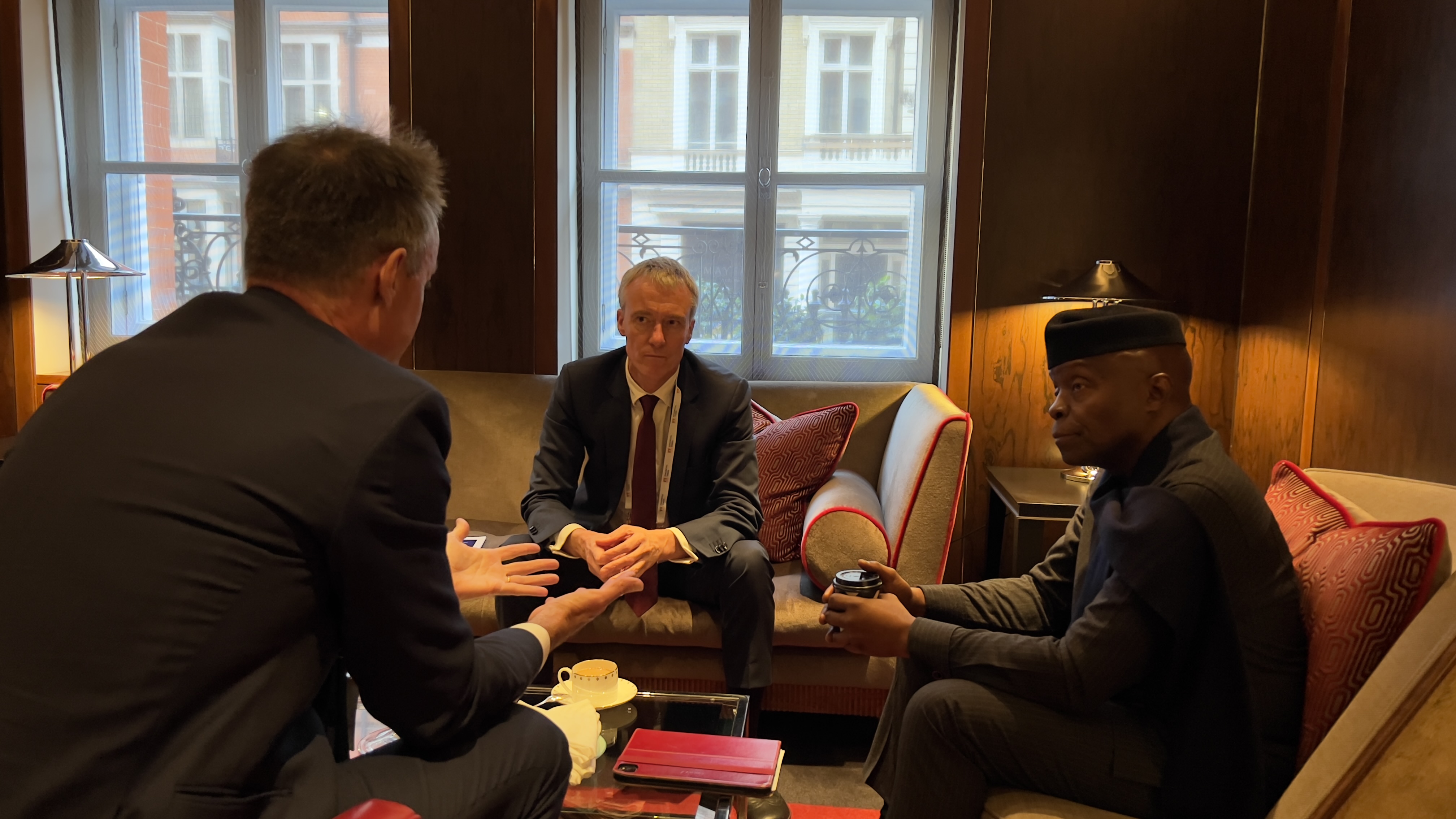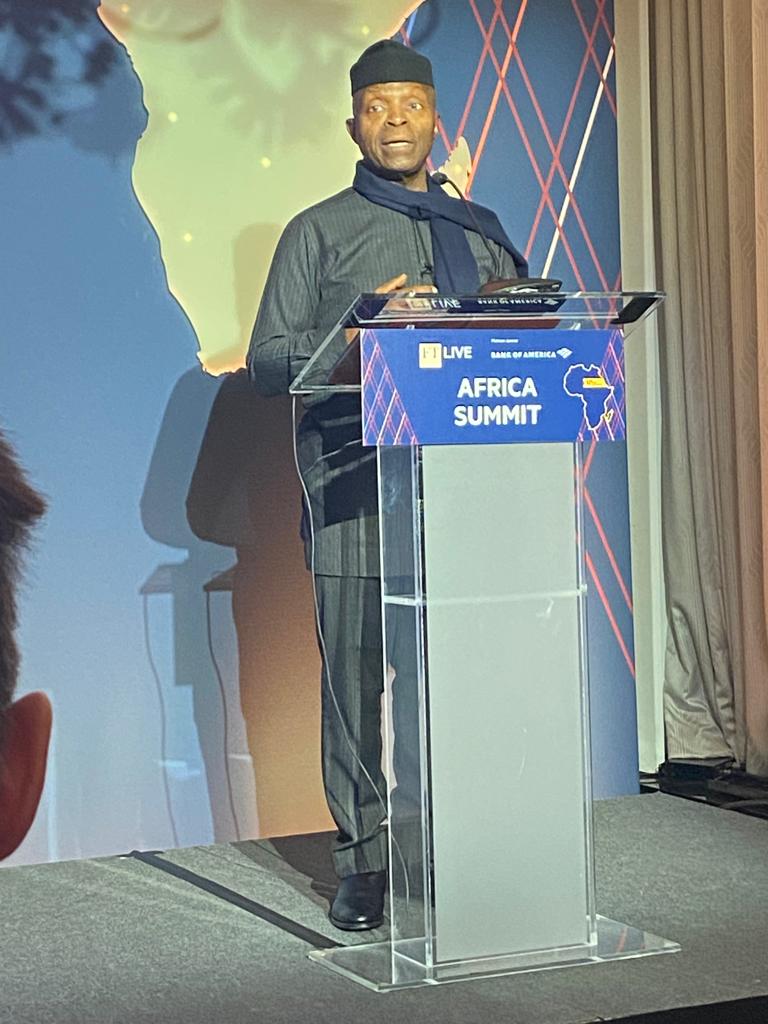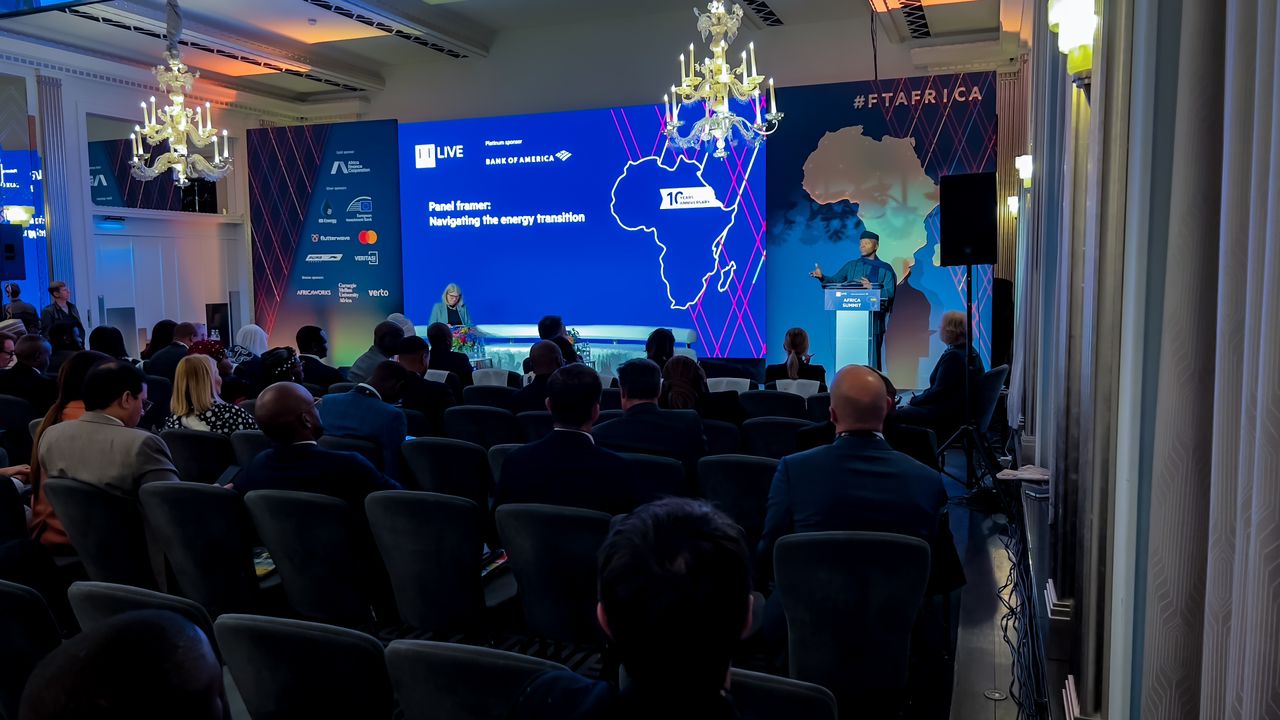
As Special Guest At FT Summit On Africa, Osinbajo Harps On Climate-Positive Growth Potential
Africa can be the first green industrial hub of the world because of its vast potential of renewable energy, the youngest and fastest growing workforce and an abundance of critical minerals, according to the immediate past Vice President, Prof. Yemi Osinbajo, SAN, GCON.
Osinbajo, who was a Special Guest and speaker at the 10th anniversary of the Financial Times (FT) Africa Summit held in London on the 17th of October, added that the African Continent is set on the path of achieving the Climate Positive Growth Plan given fair and equitable access to markets, investments with the right tenor, and suitably structured patient and blended capital.
He spoke on the topic: “How Africa is Navigating the Energy Transition,” to an audience of international business leaders, policymakers and speakers from Africa and around the world at the well-attended summit.
While referencing the recently concluded Africa Climate Summit held in September in Kenya, Prof. Osinbajo noted that the adoption of the “Nairobi Declaration” at the summit endorsed by the African Union, proposed the Climate Positive Growth Plan as the economic and development paradigm for Africa.
He explained that the Climate Positive Growth Plan would ensure “Africa can actually be the green industrial hub of the world. We can grow using our renewable energy which has the largest potential in the world, and we can grow without adding emissions or keeping emissions constant but actually reducing emissions.
“We have the largest potential for renewable energy in the world; second, we have the youngest and fastest growing workforce in the world and third, we have an abundance of natural resources, and in particular, the critical minerals in the world. The real issue then is if all of these are harnessed and we get the right type of investments, Africa can actually become the green industrial hub of the world.
“Take for example, converting our bauxite to aluminium, we have 25% of the world’s bauxite, if that is done using renewable energy, we will save the world about 335million tons of CO2e, and actually create 280,000 jobs and earn about $37billion, just by keeping that production within Africa and using renewable energy.
Making the point about developed countries’ growth trajectory and how it increased carbon emissions over the years, the former Vice President noted that “economic growth has always also meant emissions growth, that is the trajectory the wealthier nations have followed, but if Africa were to grow in this same way Africa would be adding a minimum of about 12 gigatons of CO2 emissions all the way up to 2050 which will make it completely impossible for the world to achieve net-zero by 2050.”
Africa pursuing a Climate Positive Path is the answer to her own development and the attainment of global net zero ambitions, he affirmed.
On the issue of funding for a just energy transition, Prof. Osinbajo said “the problem with funding for adaptation, mitigation and even the loss and damage fund, is that these are not economic propositions, these are basically funding that come from the goodness of the hearts of wealthier countries.
“As you can imagine, faced with their own domestic pressures, the rate of default on these commitments is very high indeed, and that is how it will remain.”
Regarding Carbon Markets and strategies, the former VP observed that a lot of work has been done by the Africa Carbon Markets Initiative, ACMI.
According to him, ACMI, which is an initiative of the Global Energy Alliance for People and Planet, GEAPP, is now able “to support several countries that want to develop their carbon market activation plans. This is crucial as we go along because we find out that there is a great deal of potential here and more importantly there are several landmines on the way. What ACMI has been able to do is to help ensure that there is some planning and advice that the carbon credits have integrity and legal frameworks.”
He also explained that the argument for gas as a transition fuel was simple enough. He noted that Africa struggled with energy poverty, with millions lacking access to power, and 1 in 4 deaths of women in rural areas caused by pollution from the use of firewood.
So, he posited that “the question for gas-rich African countries is why should we leave this versatile and relatively low carbon fuel in the ground when it offers a cheap and available source of electricity for our domestic and industrial use and LPGclean cooking purposes?
“This is the argument of gas-rich countries. But the countervailing argument is that we cannot ignore a much cheaper, more readily available source of power, renewable energy.
“Every passing day, the pathway out of fossil fuel dependency seems clearer. Renewable energy is becoming consistently cheaper than fossil-fuel-generated energy and grid-level storage is rapidly improving and becoming cheaper.
“The point then is that in the short to medium term, it is not one or the other, gas as a transition fuel, but its replacement with renewable energy given the Climate Positive Growth Plan and global net zero targets is now both an economic and climate imperative.”
Prof. Osinbajo attended the event in his capacity as Global Advisor to GEAPP.
Other speakers at the 10th anniversary of FT Africa Summit included Patrice Trovoada, Prime Minister of the Democratic Republic of São Tomé and Príncipe; Dr. Ngozi Okonjo-Iweala, Director-General of the World Trade Organization (WTO); Judd B. Devermont, Special Assistant to President Joe Biden and Senior Director for African Affairs, White House; Dr. Mo Ibrahim, Founder and Chair of the Mo Ibrahim Foundation; James Mwangi, Founder of Climate Action Platform for Africa; Olugbenga Agboola, Founder and CEO of Flutterwave, amongst others.


